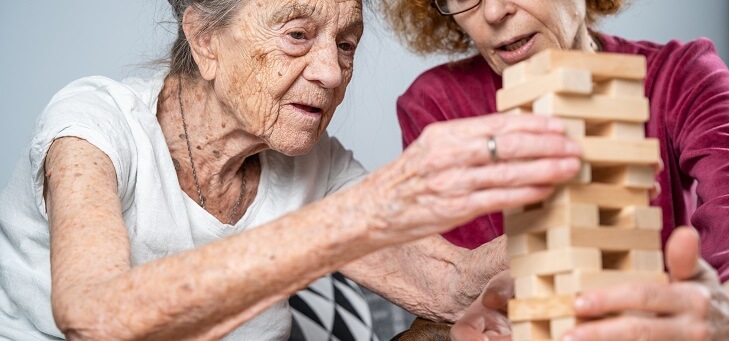The number of people living with dementia is set to double in the next 25 years, according to advocacy group Dementia Australia (DA).
Figures released by DA in July reveal that there are an estimated 487,500 Australians currently living with dementia.
Unless there is a significant medical breakthrough, that number is expected to increase to almost 1.1 million by 2058. Statistics provided by DA indicate that dementia is the second leading cause of death of Australians and the leading cause of death for women.
To increase awareness, the organisation is using Dementia Action Week, which starts today, to clear up some of the prevailing myths and misconceptions about the disease. The slogan for this year’s campaign is ‘A little support makes a big difference’, with DA emphasising that people living with dementia can live active and fulfilling lives many years after diagnosis.
Read: The most common dementia symptoms
Once diagnosed, however, sufferers often experience discrimination. A DA survey reveals that more than 70 per cent of people believe discrimination towards people with dementia is common or very common.
Dementia, of course, does not just have an impact on the nearly 500,000 Australian sufferers. DA estimates that almost 1.6 million Australians are involved in the care of those with dementia.
While many of us think of dementia as an older person’s condition, early onset dementia is not as uncommon as we might think. As part of this year’s campaign, DA has highlighted the stories of three such people, Natalie, Juanita and Bruce, in a series of ‘personal story’ videos.
Case study: Juanita
In all three cases, the sufferers are managing to live full and active lives, with varying degrees of support. For Juanita, the biggest drawback of her condition is being distracted from the task at hand, for which she uses a timer to help her keep on track.
Read: Study finds menopause can increase dementia risk
Diagnosed in 2019 with young onset early stage behavioural variant frontotemporal dementia (bvFTD), Juanita – who has a background in scientific research – was aware of a family history of dementia, and had been watching for the signs.
Since her diagnosis, she has learnt that she has the genetic mutation for bvFTD from her father. She has read the scientific literature about this condition and the mutation extensively, including the latest diagnostic criteria.
Juanita is completing a graduate certificate in diagnostic genomics, to better understand genetic dementia diagnosis, and she has also initiated the Western Brisbane Dementia Alliance to connect with other people in her local community and make Western Brisbane more dementia friendly.
Supporting those with dementia
Dementia Action Week also focuses on the carers of those with dementia, highlighting that their role does not preclude them from living active and fulfilling lives.
Read: What you do while sitting impacts dementia risk
Dementia Australia provides seven tips for supporting those living with dementia, under the headings ‘Home Life’, ‘Space’, ‘Listen’, ‘Be respectful’, ‘Clever technology’, ‘Initiative’ and ‘Health’.
The organisation has provided a toolkit for those looking to share information about dementia via an online or workplace event.
Dementia Australia CEO Maree McCabe AM said the toolkit was a valuable resource for anyone who wanted to support people living with dementia in their community.
“We know discrimination has a significant impact on people living with dementia, their families and carers, and a little support from the community and healthcare professionals can make a big difference,” Ms McCabe said.
Dementia Action Week runs from today until Sunday 25 September.
Has someone in your life been diagnosed with dementia? How has this affected their lives, and yours? Why not share your experience and thoughts in the comments section below?

